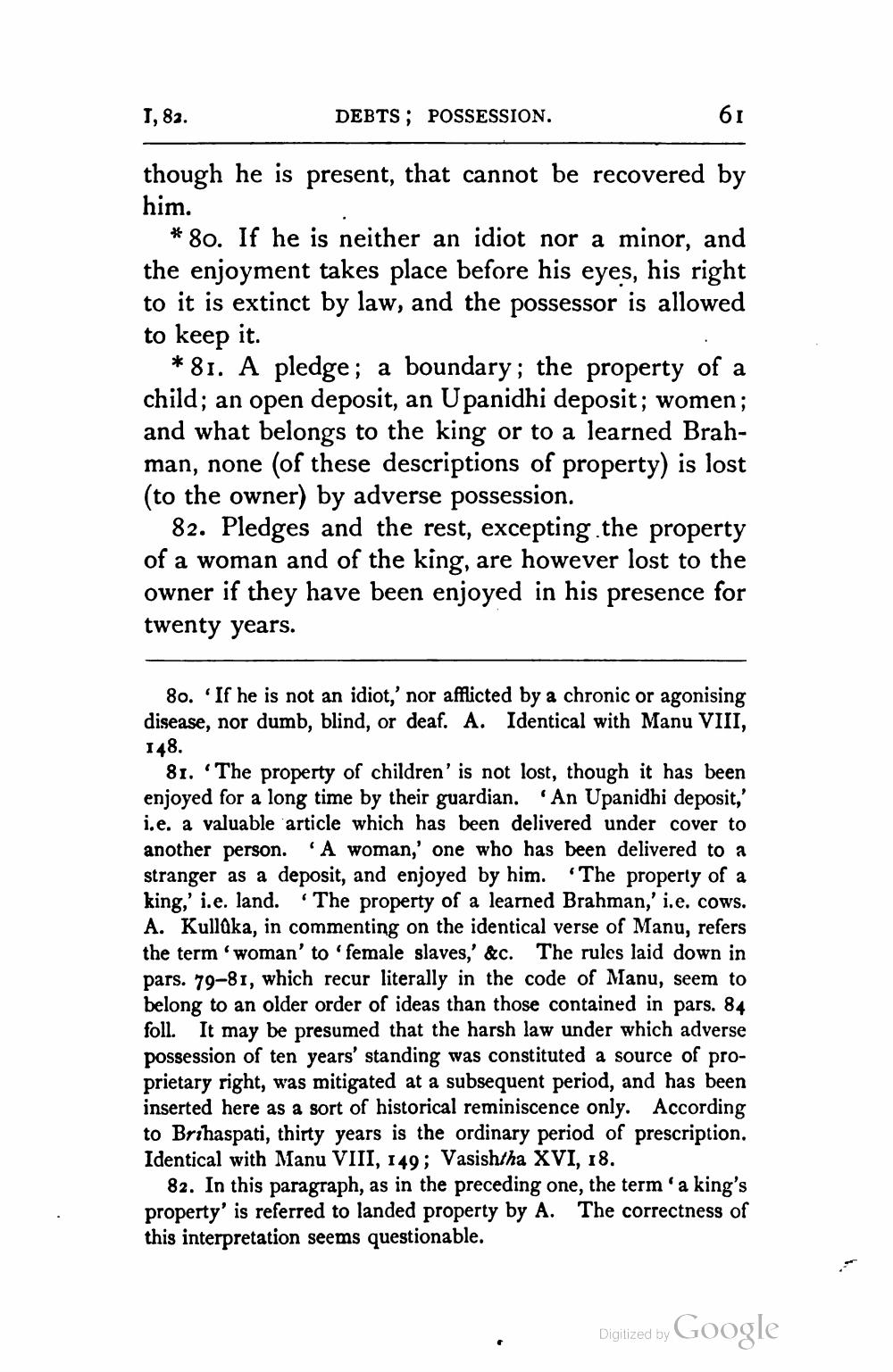________________
1, 82.
DEBTS; POSSESSION.
61
though he is present, that cannot be recovered by him.
*80. If he is neither an idiot nor a minor, and the enjoyment takes place before his eyes, his right to it is extinct by law, and the possessor is allowed to keep it.
*81. A pledge; a boundary; the property of a child; an open deposit, an Upanidhi deposit; women; and what belongs to the king or to a learned Brahman, none (of these descriptions of property) is lost (to the owner) by adverse possession.
82. Pledges and the rest, excepting the property of a woman and of the king, are however lost to the owner if they have been enjoyed in his presence for twenty years.
80. 'If he is not an idiot,' nor afflicted by a chronic or agonising disease, nor dumb, blind, or deaf. A. Identical with Manu VIII, 148.
81. The property of children' is not lost, though it has been enjoyed for a long time by their guardian. 'An Upanidhi deposit,' i.e. a valuable article which has been delivered under cover to another person. A woman, one who has been delivered to a stranger as a deposit, and enjoyed by him. The property of a king,' i.e. land. The property of a learned Brahman,' i.e. cows. A. Kullaka, in commenting on the identical verse of Manu, refers the term 'woman' to 'female slaves,' &c. The rules laid down in pars. 79-81, which recur literally in the code of Manu, seem to belong to an older order of ideas than those contained in pars. 84 foll. It may be presumed that the harsh law under which adverse possession of ten years' standing was constituted a source of proprietary right, was mitigated at a subsequent period, and has been inserted here as a sort of historical reminiscence only. According to Brihaspati, thirty years is the ordinary period of prescription. Identical with Manu VIII, 149; Vasishtha XVI, 18.
82. In this paragraph, as in the preceding one, the term'a king's property' is referred to landed property by A. The correctness of this interpretation seems questionable.
Digitized by Google




